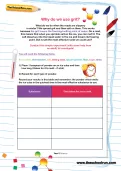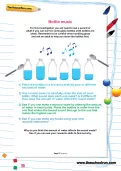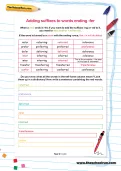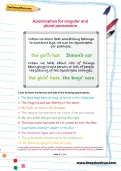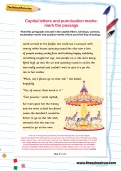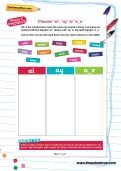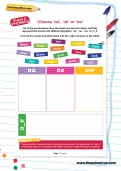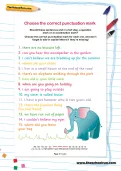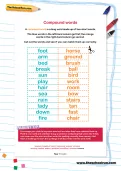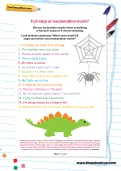Worksheet finder
Search critera
Why do we use grit?
When the roads are slippery in winter we spread grit and then salt on them. But is salt the most effective solid we could use? Conduct this simple experiment to investigate!
Bottle music
For this investigation you will need to ask a parent or adult if you can borrow some glass bottles (milk bottles are ideal). Remember to be careful when handling glass and ask an adult to help you clean the bottles first.
Adding suffixes to words ending -fer
A Year 6 English worksheet created by an experienced educator to teach your child about adding suffixes to words ending -fer.
When a verb ends in -fer, if you want to add the suffixes -ing or -ed to it, you need to add another r at the end. If the word is turned to a noun with the ending -ence, the r is not doubled. Now see if you know what all the words in the left-hand column mean. Can you write a sentence containing the red words?
When a verb ends in -fer, if you want to add the suffixes -ing or -ed to it, you need to add another r at the end. If the word is turned to a noun with the ending -ence, the r is not doubled. Now see if you know what all the words in the left-hand column mean. Can you write a sentence containing the red words?
Apostrophes for singular and plural possession
This Year 4 English worksheet was created by an experienced primary school teacher to help your child understand and practise using apostrophes for singular and plural possession.
Capital letters and punctuation marks: mark the passage
A Year 2 printable worksheet created by a primary school teacher to help your child with capital letters and punctuation marks.
Read this paragraph and add in the capital letters, full stops, commas, exclamation marks and question marks where you think they should go
Read this paragraph and add in the capital letters, full stops, commas, exclamation marks and question marks where you think they should go
Choose 'ai', 'ay' or 'a_e' (Phase 5 phonics)
All of these words have the same /ai/ sound in them, but some are spelled with the digraph 'ai', others with 'ay' or the split digraph 'a_e'. Can you cut out the words and stick them into the right columns in the table?
Choose 'oa', 'oe' or 'ow' (Phase 5 phonics)
All these words have the /oa/ sound in them, but some are spelled with the digraph 'oa', others with 'oe' or 'ow' or 'o_e'. Can you cut out the words and stick them into the right columns in the table?
Choose the correct punctuation mark
Should these sentences end in a full stop, a question mark or an exclamation mark? Choose the correct punctuation mark for each one, and don’t forget to add in capital letters if they’re missing!
Compound words
A compound word is a long word made up of two short words. The blue words in the left-hand column go first; the orange words in the right-hand column go second. Cut out the words and see if you can match them up correctly.
Full stop or exclamation mark?
We use exclamation marks when something is funny or scary or if we are shouting. Look at these sentences. Which ones need full stops and which need exclamation marks?
